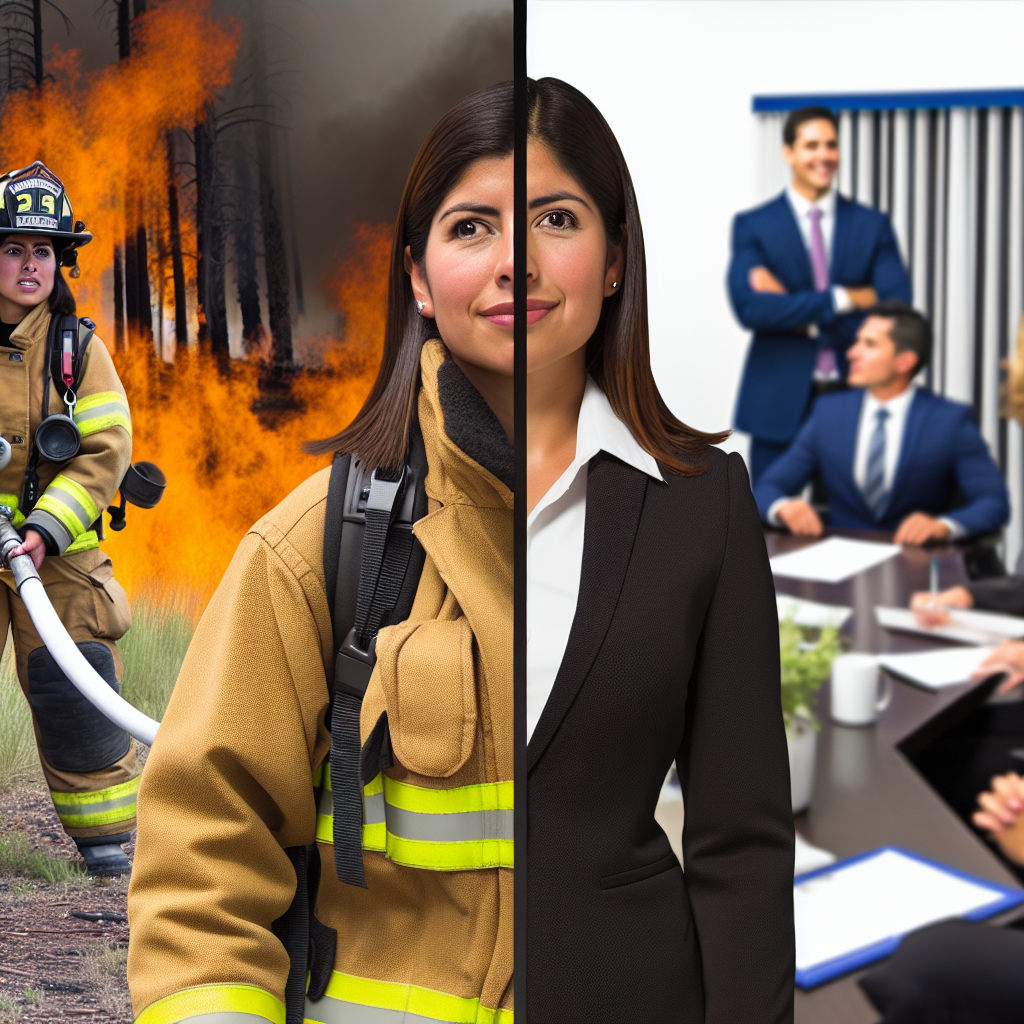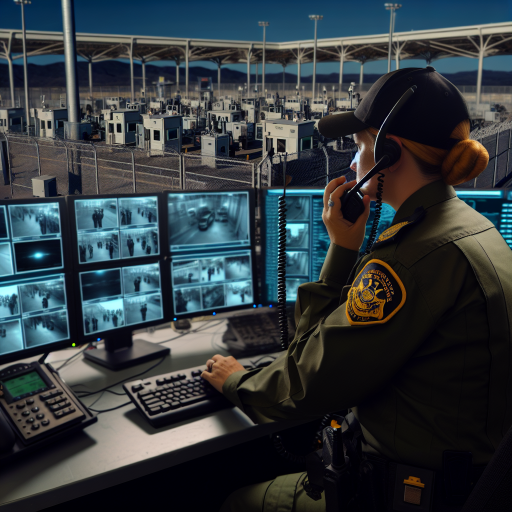Introduction:
Wildland firefighting is a dynamic and demanding career that frequently presents opportunities for career changes.
As a wildland firefighter, being able to navigate these changes is crucial for professional growth and advancement within the field.
In this blog post, we will explore the various aspects of transitioning between different roles and positions in wildland firefighting.
We will provide valuable insights for those looking to make a career change within this challenging yet rewarding profession.
Understanding the Reasons for Career Changes
Wildland firefighters may consider a career change due to various reasons.
Personal growth plays a significant role in wanting to explore different career paths.
Burnout can lead individuals to seek new opportunities outside of firefighting.
Seeking new challenges and experiences is a common desire for career change.
Self-reflection is crucial to understanding motivations behind wanting a change.
- Wildland firefighters may consider a career change due to various reasons.
- Personal growth plays a significant role in wanting to explore different career paths.
- Burnout can lead individuals to seek new opportunities outside of firefighting.
- Seeking new challenges and experiences is a common desire for career change.
- Self-reflection is crucial to understanding motivations behind wanting a change.
Exploring Different Career Paths:
Wildland firefighters have a range of career options beyond fighting fires.
Fire management offers roles in planning, logistics, and strategic operations.
Emergency response positions involve coordinating teams for disaster relief efforts.
Forest conservation roles focus on preserving natural habitats and preventing wildfires.
Other related fields include environmental education, forestry research, and firefighting training.
Successful Career Transitions:
A former wildland firefighter may transition to a fire management specialist role.
Another career path could involve moving into emergency response coordination positions.
Some firefighters may explore opportunities in forest conservation and become park rangers.
Transitioning into environmental education or training roles is also a viable option.
Successful career transitions often involve further education, certifications, and networking within the industry.
Individuals with firefighting experience can leverage their skills in various career paths.
Transform Your Career Today
Unlock a personalized career strategy that drives real results. Get tailored advice and a roadmap designed just for you.
Start NowNetworking with professionals in related fields can help identify new career opportunities.
It’s essential for wildland firefighters to stay updated on industry trends and job openings.
Continuous learning and seeking mentorship can facilitate smooth career transitions.
Exploring different career paths allows firefighters to broaden their skill sets and knowledge.
Gain More Insights: How TSA Officers Ensure Compliance with Security Regulations
Building Transferable Skills:
Identifying and developing transferable skills is crucial for successfully navigating career changes.
These skills allow individuals to transition smoothly from one role to another, showcasing their adaptability and versatility.
Importance of Transferable Skills:
- Transferable skills are essential for a wildland firefighter looking to transition into a different career path.
- Employers value candidates who possess skills such as leadership, communication, problem-solving, and adaptability.
- These skills demonstrate the ability to thrive in various roles and environments, making candidates highly sought after.
Highlighting Key Skills:
- Leadership: Showcase instances where you led a team during firefighting operations, emphasizing your ability to motivate and guide others.
- Communication: Highlight your effective communication skills in conveying critical information during emergency situations.
- Problem-Solving: Provide examples of how you tackled complex challenges while firefighting, demonstrating your analytical and innovative approach.
- Adaptability: Illustrate situations where you quickly adapted to changing conditions in the field, showing your flexibility and resilience.
Tips for Showcasing Skills:
- Customize your resume and cover letter to align with the job description, emphasizing relevant transferable skills.
- Use specific examples and quantifiable results to showcase your achievements in previous roles, highlighting your skills effectively.
- Prepare for interviews by practicing how to articulate your transferable skills and relate them to the new role you are pursuing.
- Show enthusiasm and confidence in discussing your skills, making a strong impression on potential employers during interviews.
By focusing on developing and showcasing transferable skills, wildland firefighters can successfully transition into new career paths and excel in diverse roles.
Gain More Insights: Top Forensic Science Cases in History
Networking and Professional Development:
- Networking is crucial in the wildland firefighting community for career growth.
- Attending conferences allows firefighters to meet professionals in related industries.
- Online platforms like LinkedIn provide opportunities to connect with experts.
- Continuing education helps firefighters stay updated with the latest advancements.
- Obtaining certifications such as Incident Commander enhances career prospects.
The Importance of Networking:
Networking within the wildland firefighting community is essential for career advancement.
Building relationships with fellow firefighters, industry experts, and professionals from other related fields can open doors to new opportunities.
By attending networking events, firefighters can gain insights, share experiences, and learn about job openings or training programs.
Suggestions for Networking Events:
There are various networking opportunities available for wildland firefighters.
Attending industry conferences, workshops, and training sessions can help firefighters connect with professionals from different backgrounds.
Additionally, online platforms such as social media groups or forums provide a virtual space for networking and exchanging information.
Benefits of Continuing Education and Certifications:
Continuing education is crucial for firefighters to enhance their knowledge and skills.
Pursuing certifications in specialized areas like Wildland Firefighting or Emergency Response can demonstrate expertise and dedication to the field.
Employers often value candidates with additional qualifications, leading to better career prospects and higher earning potential.
See Related Content: Ethics and Integrity in the Secret Service Profession
Showcase Your Business Today
Reach thousands of readers actively exploring professional services. Publish your business profile and grow your audience now.
Publish NowSetting Goals and Making a Plan
Encourage readers to set clear goals for their career changes.
Discuss the importance of creating a detailed plan with actionable steps for achieving those goals.
Offer guidance on setting realistic timelines and tracking progress.
Setting Clear Goals
When embarking on a career change as a wildland firefighter, it is essential to have clear, specific goals in mind.
Setting goals helps provide direction and focus on what you want to achieve in your career transition.
Importance of a Detailed Plan
Creating a detailed plan with actionable steps is crucial for navigating through career changes successfully.
A plan lays out the necessary steps to reach your goals and helps you stay organized and on track.
Steps for Achieving Goals
Break down your goals into smaller, manageable tasks.
This makes it easier to track progress and ensures that you are moving towards your desired outcome.
Take each step one at a time to avoid feeling overwhelmed.
Setting Realistic Timelines
It is important to set realistic timelines for achieving your career change goals.
Consider your current commitments, resources, and any potential obstacles that may arise.
Adjust your timelines as needed, but also hold yourself accountable to staying on track.
Tracking Progress
Regularly monitor and track your progress towards your career change goals.
This allows you to celebrate small victories, identify areas for improvement, and stay motivated throughout the process.
Consider keeping a journal or using a tracking tool to visually see your progress.
By setting clear goals, creating a detailed plan, setting realistic timelines, and tracking your progress, you can navigate through wildland firefighter career changes with confidence and determination.
See Related Content: Physical Fitness Requirements for Security Agents

Overcoming Challenges and Resilience:
Transitioning to a new career path can bring forth a multitude of challenges and obstacles for wildland firefighters.
Here are some strategies to help navigate these hurdles and build resilience:
- Acknowledge the challenges: It’s essential to recognize and accept the difficulties that come with switching careers. Embrace them as opportunities for growth and learning.
- Develop a growth mindset: Instead of viewing setbacks as failures, see them as opportunities to learn and improve. Stay positive and focused on your goals.
- Seek support: Surround yourself with a strong support system of friends, family, and colleagues who can offer encouragement and guidance during tough times.
- Stay adaptable: Be prepared to pivot and adjust your plans as needed. Flexibility is key when navigating career changes, especially in unpredictable industries like wildland firefighting.
- Practice self-care: Take care of your physical and mental health by prioritizing self-care activities such as exercise, meditation, and hobbies that bring you joy.
- Set realistic goals: Break down your career transition into smaller, achievable goals. Celebrate small wins along the way to stay motivated and on track.
- Stay resilient: Remember that setbacks are a natural part of any career journey. Stay resilient by maintaining a positive attitude and perseverance in the face of challenges.
Stories of Resilient Wildland Firefighters:
Despite the challenges they have faced, many wildland firefighters have successfully navigated career changes with resilience and determination.
Here are a few inspiring stories:
- Emily, a seasoned wildland firefighter, decided to pursue a career in environmental conservation after sustaining a career-ending injury. Despite the setback, she enrolled in college and earned a degree in environmental science.
- Mark, a former wildland firefighter, transitioned into a role as a fire management specialist after realizing his passion for fire prevention and education. He completed additional training and certifications to make a smooth career change.
- Sarah, a wildland firefighter for over a decade, decided to shift gears and become a fire ecologist to study the impact of wildfires on ecosystems. She leveraged her field experience to pursue research opportunities in academia.
- Mike, a retired wildland firefighter, found a new calling as a disaster response coordinator for a nonprofit organization. His expertise in emergency response and crisis management translated seamlessly into his new role, allowing him to continue making a difference in communities.
These stories highlight the resilience and adaptability of wildland firefighters in the face of career changes.
By embracing challenges, seeking support, and staying focused on their goals, they were able to successfully transition into new roles and continue making a positive impact in their communities.
Seeking mentorship and support is crucial in navigating career changes as a wildland firefighter.
Here’s why:
Value of Mentorship and Support
- Experienced professionals offer valuable insights and guidance.
- Mentors can help you understand the industry landscape and potential opportunities.
- Having a mentor can boost your confidence and motivation during transition phases.
Finding a Mentor
- Look for someone who has experience in the wildland firefighting industry.
- Attend industry events and seminars to network and connect with potential mentors.
- Reach out to former colleagues or supervisors who can provide mentorship.
Building a Support System
- Friends, family, and colleagues can offer emotional support during career changes.
- Join online forums or support groups for wildland firefighters to connect with peers.
- Having a strong support system can help you navigate challenges and setbacks with resilience.
Remember, seeking mentorship and building a support system are not signs of weakness but strengths that can help you thrive in your new career path as a wildland firefighter.
Career Advancement Strategies for Wildland Firefighters
As wildland firefighters, career changes are inevitable.
However, with the right mindset and strategies, they can be navigated successfully.
It is crucial to stay proactive, adaptable, and strategic in pursuing career goals.
Summarizing key points from this blog post emphasizes the importance of preparation for changes.
Seizing opportunities for growth and advancement is essential.
Taking action and seeking out new challenges will allow you to continue evolving in your career.
Additional Resources
Firefighter fatalities in the United States | NFPA
Zach Earl: Bringing firefighting experience to fire risk management at …
[E-Books for Sale]
The Big Book of 500 High-Paying Jobs in America: Unlock Your Earning Potential
$19.99 • 500 High-Paying Jobs • 330 pages
Explore 500 high-paying jobs in America and learn how to boost your career, earn more, and achieve success!
See All 500 High-Paying Jobs of this E-Book
1001 Professions Without a Degree: High-Paying American Jobs You Can Start Now
$19.99 • 1001 Professions Without a Degree • 174 pages
Discover 1001 high-paying jobs without a degree! Unlock career tips, skills, and success strategies for just $19.99!




